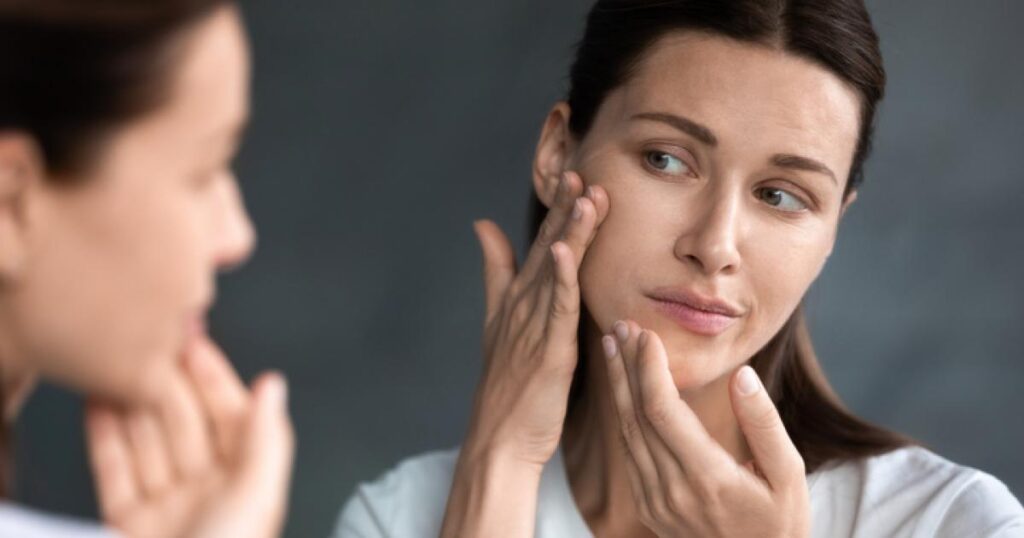Between 10-20% of the global population is thought to have suffered a reaction from harmful or allergenic cosmetic ingredients.
To help consumers navigate this, leading dermatologist Dr Conal Perrett has released the 2025 Skincare Red List, highlighting the nine most harmful skincare ingredients and practical steps people can take to protect their skin barrier.
“With skin sensitivities on the rise, it’s crucial for consumers to understand what’s in their skincare,” said Dr Conal Perrett, consultant dermatologist at The Devonshire Clinic. “By eliminating harsh ingredients and choosing scientifically proven alternatives, we can protect the skin’s barrier, reduce irritation, and promote long-term skin health.
“A compromised skin barrier doesn’t just make the skin feel tight or dry, it can increase susceptibility to allergic reactions, infections, and chronic inflammation. That’s why it’s so important to understand how ingredients interact with your skin, and to choose products that support rather than undermine its natural defences.
The 2025 skincare red list: Ingredients to watch
- Harsh detergents (SLS, SLES): Strips natural oils, cause dryness and irritation.
- Denatured alcohols (Ethanol, Isopropyl): Dehydrates the skin, weakens the protective barrier.
- Fragrance & essential oils: Most common cause of allergic reactions.
- Parabens: Disrupts skin microbiome.
- Formaldehyde-releasing preservatives: Associated with chronic dermatitis.
- Chemical sunscreen filters (Oxybenzone, Octinoxate): Hosts strong irritants and creates environmental toxicity.
- Synthetic dyes (FD&C colours): Can trigger allergic reactions to sensitive skin.
- PEG compounds: May contain carcinogenic byproducts and increases toxin absorption.
- Overuse of acids (AHA/BHA at high strength): Damages skin barrier and increases UV sensitivity.
Dr Perrett continued: “Many people aren’t aware that everyday skincare products can gradually weaken the skin’s natural barrier, leading to irritation, redness, and long-term sensitivity. The issue isn’t just about one ingredient or another, it’s the cumulative effect of repeated exposure to harsh detergents, synthetic fragrances, and alcohol-based formulas that strip and stress the skin over time.
“For anyone experiencing a reaction, it’s crucial to pause the product, simplify routines, and focus on gentle, supportive care while the skin recovers. Over time, protecting the skin’s barrier not only reduces immediate irritation but also strengthens long-term skin health, keeping it resilient, hydrated, and balanced.”
These expert-backed tips provide guidance for creating a healthier skin barrier.
Dermatologist tips for safer skincare:
- Check ingredient labels: avoid products with sulphates, parabens, and denatured alcohols.
- Patch test new products: apply a small amount to the inner arm and wait 48 hours before full use.
- Opt for fragrance-free formulas: especially if you have sensitive or allergy-prone skin.
- Look for barrier-boosting ingredients: such as ceramides, niacinamide, glycerine, and squalane.
- Don’t over-exfoliate: limit acids to a few times a week to avoid barrier damage.
- Choose mineral sunscreens: zinc oxide and titanium dioxide are gentler alternatives to chemical filters.
- Simplify your routine: fewer products often mean less risk of irritation.




